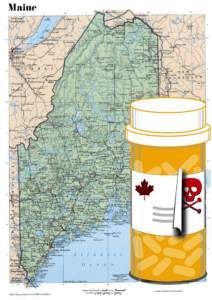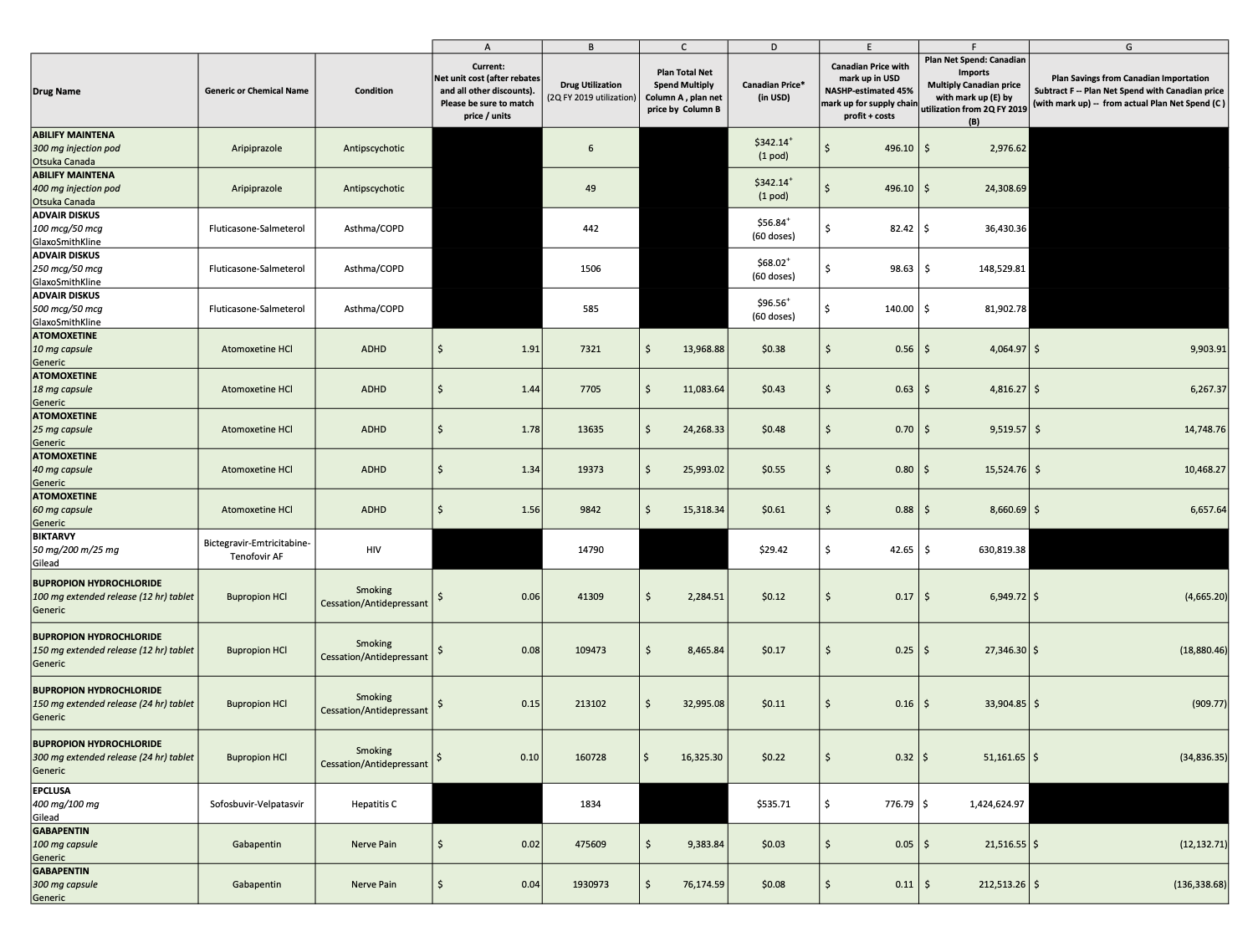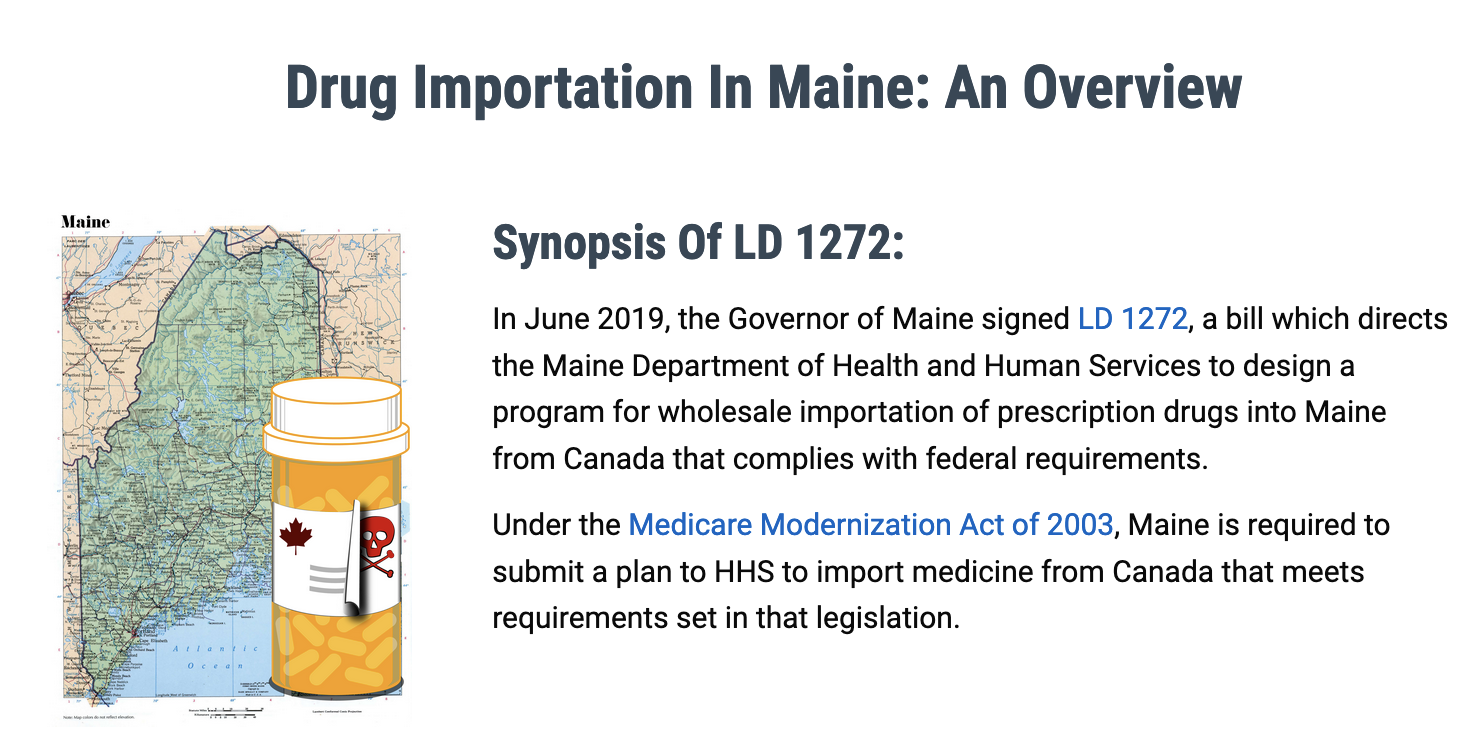Maine’s Medicaid program analysis shows the truth: importing medicine from Canada would cost more, not less.

As of 2019, almost 20% of Maine residents received part of their healthcare coverage from MaineCare, Maine’s Medicaid program. The numbers may be larger now, since Maine added almost 65,000 people to MaineCare via Medicaid expansion beginning in early 2019.
That’s a sizable number, and it’s why our ears perked up during a March 2020 meeting, when MaineCare’s Director of Pharmacy Operations Jill Kingsbury referred to a pricing analysis that showed that drug importation would not save the state’s Medicaid program any money.
What? When the legislature passed LD 1272 in June 2019, proponents were clear that prices for medicine in Canada were cheaper across the board.
Maine's Medicaid director ignored our polite request for a copy of that analysis. So we submitted a Freedom of Access Act (FOAA) request for that information. As is common with FOAA requests, we waited months and watched the state blow past a reasonable deadline.
Finally we received a heavily redacted spreadsheet comparing prices for 50 of the 115 potential drugs for importation. We can see complete information for 14 generics. For the other 36 medicines—all name brand drugs—Maine honored non-disclosure agreements by removing information about what MaineCare pays for the drugs after rebates and discounts from pharmaceutical companies. We don’t take issue with that.
This is an analysis of only 50 of the proposed 115 medicines and we wonder if we truly got all the analysis they did, but still, we can see the bottom line price comparison for these 50 drugs:
Maine would lose nearly a million additional dollars ($927,983.28, to be exact) importing these drugs from Canada for Medicaid. They already get many medicines cheaper within the U.S. supply chain.
Given the cheerleading for Canadian drug importation in Maine, we can see why its advocates didn’t want us to get our hands on this.
MaineCare's price comparison. (Source: MaineCare. Obtained via Freedom of Access Act)
How can this be if Canada’s drug prices are so much lower than in the U.S.?
The short answer is that once you figure in rebates, Canada is not the land of cheap drugs people think it is. Here’s why:
- Pharmaceutical rebates: “List” prices for pharmaceuticals don’t reflect the real cost of medicines. After rebates and discounts from pharmaceutical companies, MaineCare pays less for medicines than importation supporters anticipated. This is understandable, since rebate contract terms, which lower the prices of drugs by an average of 40% and sometimes by more than 60%, are trade secrets. (Private health insurance also negotiates discounts with drug companies, but this data only relates to MaineCare.)Canadian imported medicines do not come with rebates, and they never will. Rebates are such a huge part of the pricing of pharmaceuticals in the US that it seems unlikely that you’ll ever be able to save much money if you have to give them up.
- Importation operating costs: Maine importation backers calculated prices using a 45% markup that the National Academy for State Health Policy (NASHP) suggested would cover supply chain and administrative costs. NASHP believed importation would still deliver ample savings after the mark up, but Kingsbury’s analysis shows otherwise. (PSM believes that 45% wildly underestimates the cost of safety testing. Learn why.)
- Canadian prices are not consistently lower: When one looks at the 14 generic drugs that are not redacted in the spreadsheet, it becomes clear that some generics are available at lower prices here in the U.S. than in Canada. MaineCare would lose more than $136,000 importing 300mg capsules of gabapentin, for example, and more than $34,000 importing 300mg bupropion pills. We at PSM love Canada, but it’s not the land of universally cheap medicine that advocates have been selling.
What can we conclude from this snapshot of information?
- Importation advocates in Maine have wildly overpromised savings from Canadian importation. When you dig a little, there are fewer medicines that would save the money that advocates have promised. Large scale importation is not likely to deliver substantial savings for the state budget or for Maine residents.
- One in five Maine residents is served by Medicaid, and won’t be helped by programs like this. That’s not what Maine legislators promised.
- Given Canada’s announcement of restrictions on Canadian wholesalers exporting medicine, Maine is unlikely to get any wholesaler in Canada to do business with them.
Maine is projecting a $524 budget million deficit by mid-2021. At a time when the state is struggling to contain COVID-19, is this really the right priority for Maine’s healthcare experts? Not one more state tax dollar or resource should be spent on this program. It won’t yield the savings that have been promised.

